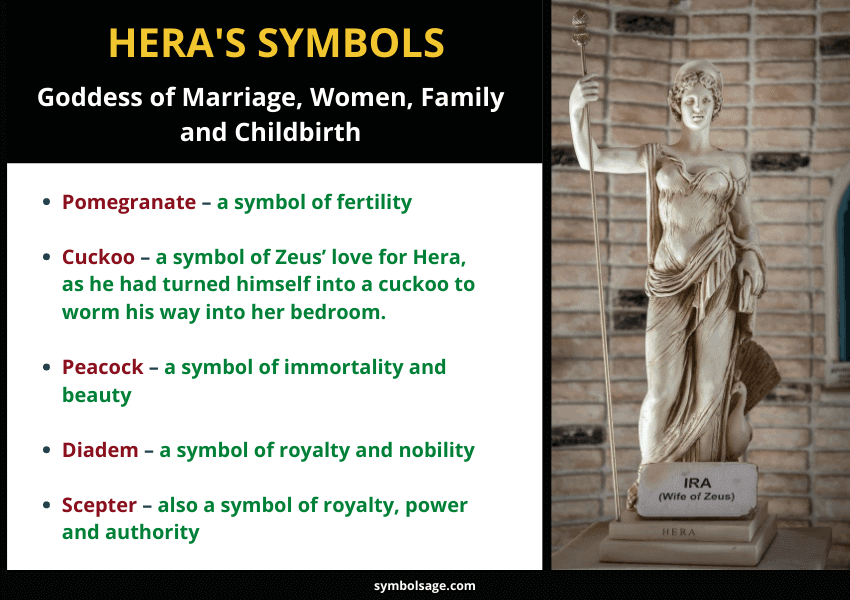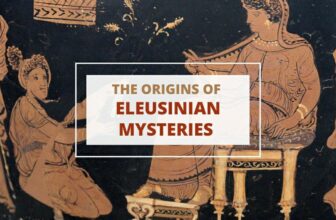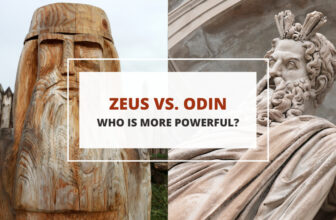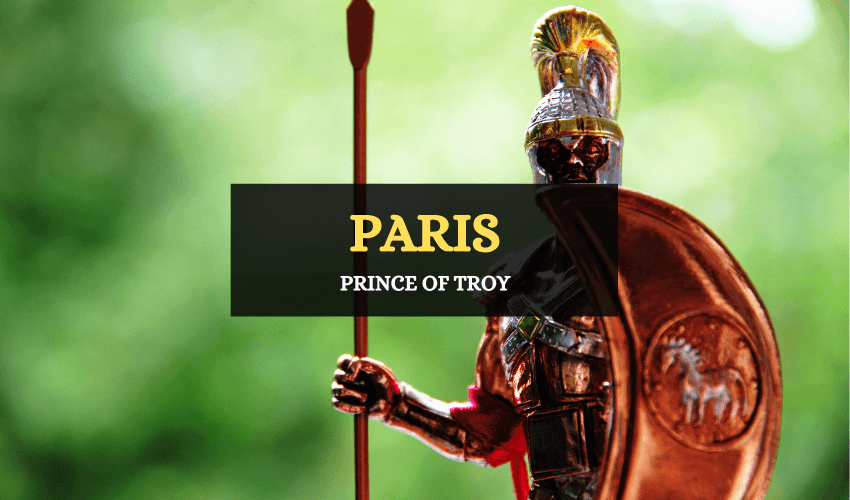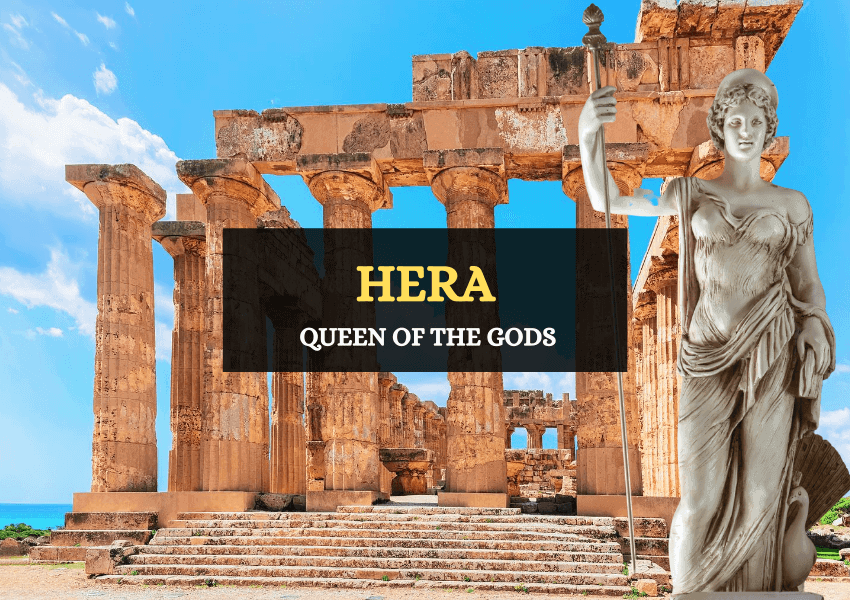
Table of Contents
Hera (Roman counterpart Juno) is one of the Twelve Olympians and is married to Zeus, the most powerful of all the Greek gods. This makes her the Queen of the Gods. She is the Greek goddess of women, family, marriage, and childbirth, and the protector of married woman. While she’s seen as a mother figure, Hera is known for being jealous and vengeful against the illegitimate children and many lovers of her husband.
Hera’s Origins and Story
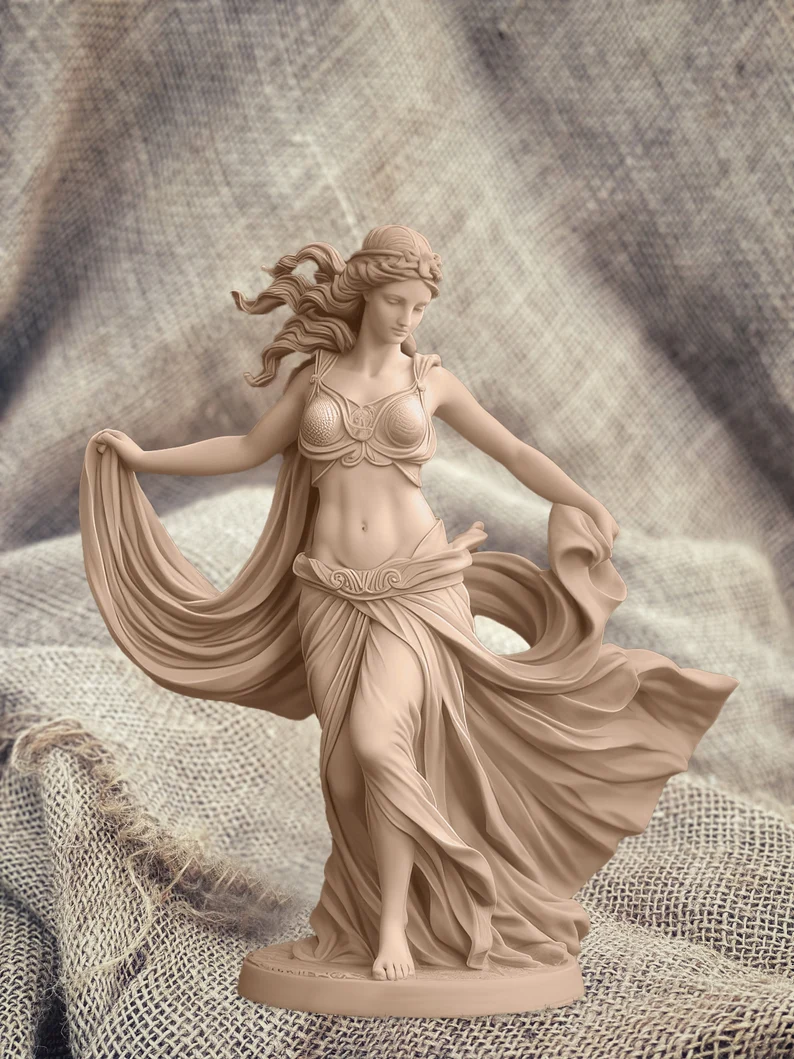
Hera was extremely venerated by Greeks who dedicated numerous impressive temples to her worship. This included the Heraion of Samos, one of the largest Greek temples in existence. In art, she is commonly seen with her sacred animals: the lion, peacock, and cow. She is always depicted as majestic and queenly.
Hera is the eldest daughter of the titans, Cronus and Rhea. As the myth goes, Cronus learned of a prophecy in which he was fated to be overthrown by one of his children. Terrified, Cronus decided to swallow all of his children whole in an attempt to circumvent the prophecy. Rhea took her youngest child, Zeus, and hid him away, instead giving her husband a strong to swallow.
Zeus later tricked his father into regurgitating his siblings, including Hera, who had all continued to grow and mature into adulthood inside of their father courtesy of their immortality.
Hera’s marriage to Zeus was fraught with infidelity as he had many affairs with various other women. Her jealousy towards her husband’s lovers and children meant she spent all of her time and energy tormenting them, trying to make their lives as hard as possible. Sometimes, she even went so as to have them killed. It’s ironic that the goddess of marriage never quite had the perfect marriage she so desperately wanted.
Hera’s Marriage to Zeus
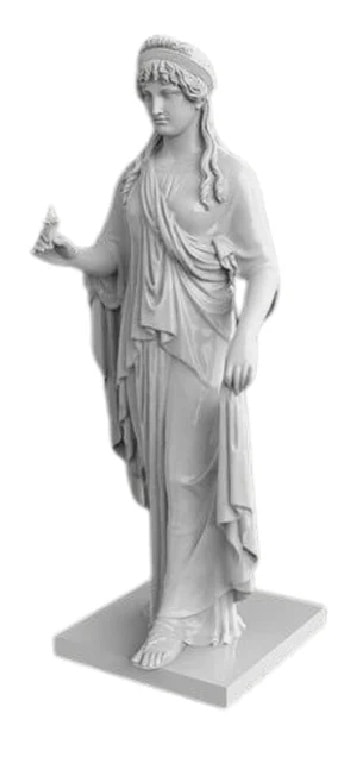
Hera’s marriage to Zeus was an unhappy one. Initially, she refused his offer of marriage, perhaps knowing that this philandering deity would never be true to her. Zeus then played on her compassion for animals by transforming himself into a little bird and pretending to be in distress outside Hera’s window. Hera carried the bird into her room to protect it and warm it, but Zeus than transformed back into himself and raped her. She agreed to marry him out of shame. We can all agree that that’s not the best start to any marriage.
True to her nature, Hera was loyal to her husband, never engaging in any extramarital affair. These traits strengthened her association with marriage and fidelity for the Greeks who worshipped her. Unfortunately for Hera, Zeus was not a loyal partner and had numerous love affairs and illegitimate children. This was something she had to battle with all the time, and while she couldn’t stop him, she could take her revenge. Even Zeus was afraid of her wrath.
Myths Featuring Hera
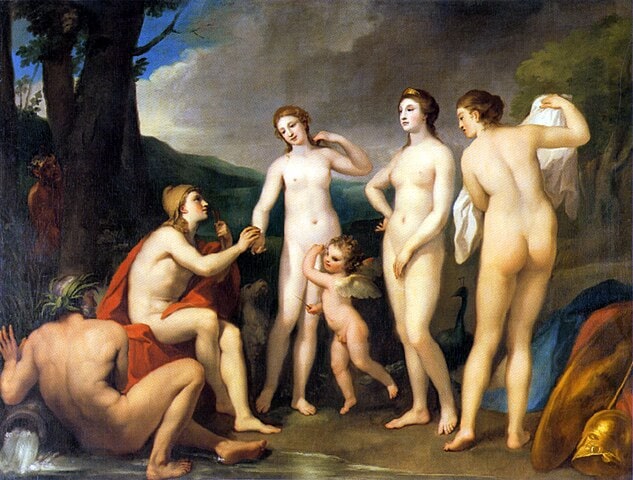
There are several stories connected to Hera which showcase her anger, wrath, pettiness, and jealosy. Most of them involve Zeus’ lovers or illegitimate children. Of these, the most famous are as follows.
1. Heracles
Hera is the sworn enemy and unwitting stepmother of Heracles. As an illegitimate child of Zeus, she tried to prevent his birth in any way possible, but ultimately failed. As an infant, Hera sent two serpents to kill him as he slept in his crib. But as always, Heracles managed to survive, this time by strangling the snakes with his bare hands.
When he became an adult, Hera eventually drove him mad, which caused him to lash out and murder his entire family. This later led him to undertaking his famous 12 labors. During these labors, Hera continued to make his life as hard as possible, nearly killing him many times.
2. Leto
In the classical Greek myth, when Hera discovered that Leto was pregnant with Zeus’s children, she became extremely jealous and cursed Leto to wander the earth in search of a place to give birth. She forbade any place on earth, under the sky, or in the sea from offering her shelter.
Leto found Delos (or the island found her) after a long and arduous search. Delos was a floating island, which meant it was not considered “terra firma” and therefore wasn’t technically defying Hera’s curse. Leto went on to first give birth to Artemis, and then, with Artemis’s assistance, she delivered Apollo. The birth of these two powerful gods caused Hera great displeasure.
3. Io
In this story, Zeus fell in love with the nymph Io, and when Hera became suspicious, Zeus transformed Io into a beautiful heifer to disguise her. When Hera arrived and saw the lovely cow, she recognized the ruse (or at least was still suspicious). So, Hera asked Zeus to give her the cow as a gift. Caught in his own deception, Zeus had no choice but to agree.
To ensure that Zeus could not change Io back into a woman, Hera placed her in the keep of the hundred-eyed giant Argus. Zeus ordered the messenger god Hermes to rescue Io, and Hermes accomplished this by lulling Argus to sleep with his music and then slaying him. Io was eventually returned to her human form, but not before enduring many hardships, including being chased by a stinging gadfly sent by Hera.
4. Paris
In the story of the golden apple, the three goddesses Athena, Hera, and Aphrodite all vie for the title of the most beautiful goddess. Hera offered the Trojan prince Paris political power and control over all of Asia if he chose her as the most beautiful of all the goddesses. When she was not chosen, Hera became enraged and supported Paris’ opponents (the Greeks) in the Trojan War.
5. Lamia
Zeus was in love with Lamia, a mortal and the Queen of Libya. In retaliation, Hera either transformed Lamia into a monster or drove her to madness, causing her to devour her own children. In some versions of the myth, Hera kills Lamia’s children herself. Hera then cursed her so that she could never close her eyes, and had to always obsess over her dead children’s image. In another version, Zeus gave Lamia the ability to remove her eyes, as a relief from the perpetual torment of seeing her lost children.
Hera’s Children
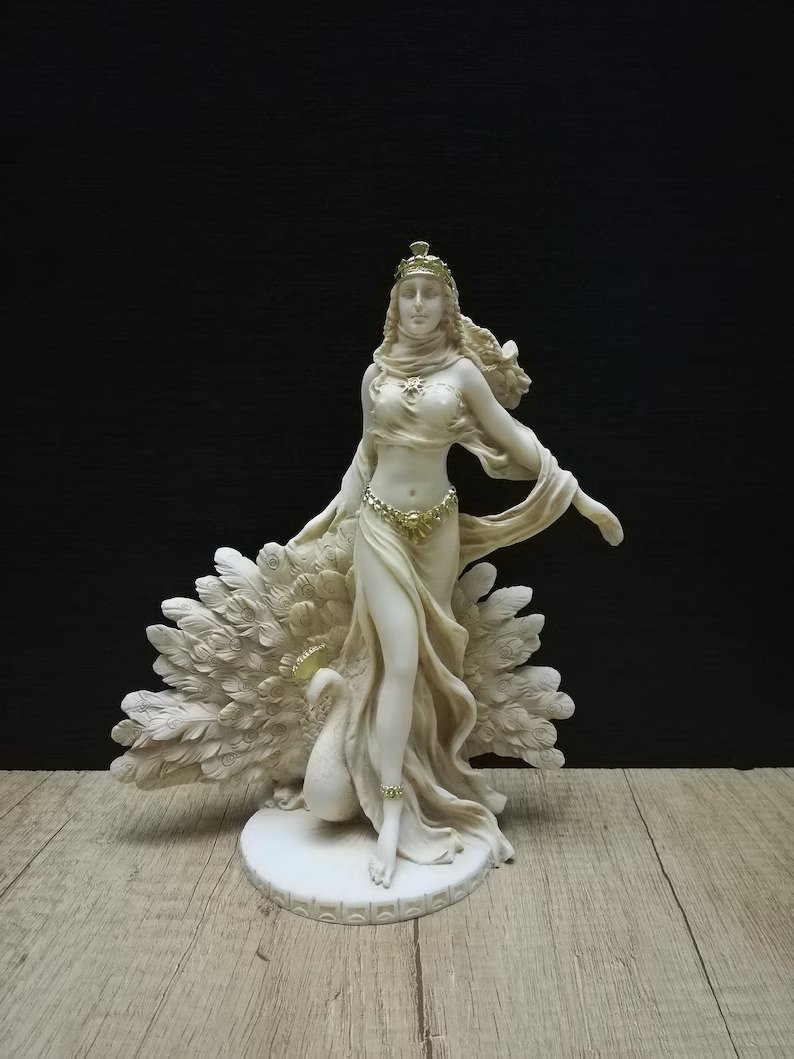
Hera has many children, but there appears to be some confusion about the exact number. Different sources give different numbers, but in general, the following figures are considered the main children of Hera:
- Ares – The god of war, he was both hated and feared throughout Greek mythology due to his violent nature and quick temper.
- Eileithyia – The goddess of childbirth and midwifery. She was believed to aid in the birthing process, though she could also delay or prevent it if proper respect was not shown to her.
- Enyo – a war goddess
- Eris – goddess of discord. However, sometimes Nyx and/or Erebus are portrayed as her parents.
- Hebe – The goddess of youth, she served as the cupbearer to the gods and goddesses of Mount Olympus, serving their nectar and ambrosia.
- Hephaestus – The god of blacksmiths, metalworking, carpenters, craftsmen, artisans, sculptors, metallurgy, fire, and volcanoes. He is sometimes depicted as being born directly from Hera without a father as an act of defiance against Zeus’ ability to produce offspring on his own, such as Athena from his forehead.
- Typhon – A serpent monster. In most sources, he’s depicted as the son of Gaia and Tartarus, but in one source he’s the son of Hera alone.
Symbols of Hera
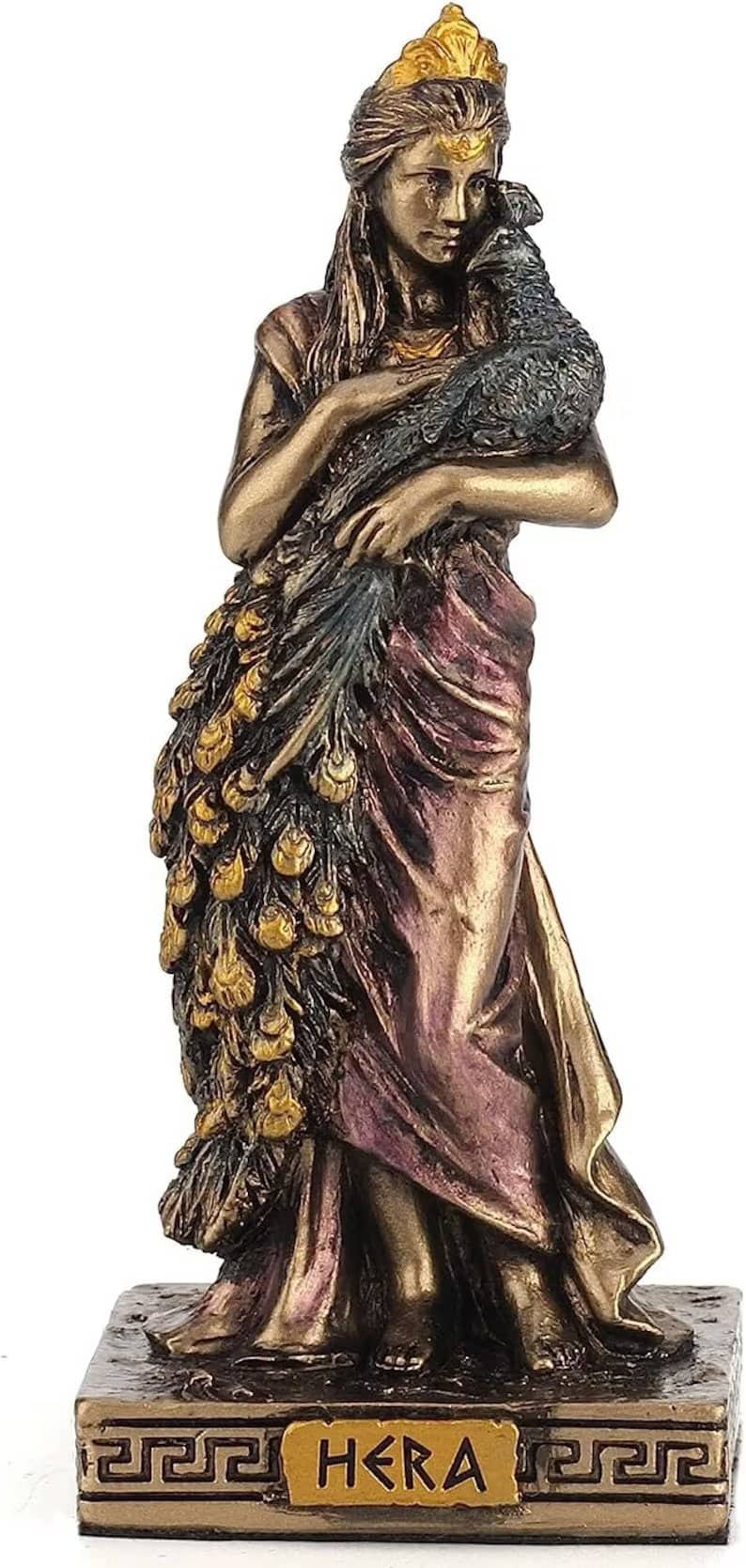
Hera is often shown with the following symbols, which were significant to her.
- Pomegranate: A symbol of fertility, which falls into Hera’s domain as the goddess of marriage and childbirth.
- Cuckoo: A symbol of Zeus’ love for Hera, as he had turned himself into a cuckoo to worm his way into her bedroom. However, it’s also a symbol of deceit and seduction, as he used the cuckoo as a decoy to bed Hera.
- Peacock: The peacock is related to the story of Argus, Hera’s faithful watchman with a hundred eyes. When he was killed, Hera placed his hundred eyes on the tail of the peacock, a symbol of her power of watchfulness and her presence in all things.
- Diadem: The diadem represents Hera’s status as Queen of the Gods and her royal authority.
- Scepter: A common symbol of rulership and authority. As the queen of the gods, the scepter represents Hera’s power and authority.
- Throne: Like the scepter and diadem, the throne represents Hera’s high status among the gods and her role as the queen of the gods.
- Lion: The lion is a symbol of power, strength, and royalty, all characteristics that suit Hera’s status as Queen of the Gods.
- Cow: In ancient cultures, cows were also symbols of abundance, nurturing, and motherhood, tying in with Hera’s role as the goddess of women and childbirth.
As a symbol herself, Hera represented fidelity, loyalty, marriage and the ideal woman. Although she was driven to commit vengeful acts, she always remained faithful to Zeus. This strengthens Hera’s connection to marriage, family and faithfulness, making her a universal wife and mother figure.
Hera In Other Cultures
Hera as a matriarchal mother figure and the head of the household is a concept that predates the Greeks and is a part of many cultures.
- Matriarchal Origins
Hera has many characteristics that are also attributed to pre-Hellenic goddesses. There has been some scholarship dedicated to the possibility that Hera was originally the goddess of a long-ago matriarchal people. It’s theorized that her later transformation into a marriage goddess was an attempt to match the patriarchal expectations of the Hellenic people. The intense themes of jealousy and resistance over Zeus’ extramarital affairs are meant to undercut her independence and power as a female goddess. However, the idea that Hera may be a patriarchal expression of a pre-Hellenic, powerful Great Goddess is fairly fringe among Greek mythology scholars.
- Hera in Roman Mythology
Hera’s counterpart in Roman mythology is Juno. Like Hera, Juno’s sacred animal is the peacock. Juno was said to have watched over the women of Rome and was sometimes called Regina by her followers, meaning “Queen”. Juno, unlike Hera, had a distinct warlike aspect, which was apparent in her attire as she was often depicted armed.
Hera In Modern Times

Hera is featured in a multitude of different pop culture artifacts. Notably, she appears as an antagonist in Rick Riordan’s Percy Jackson books. She often works against the main characters, especially those born of Zeus’ infidelity. Hera is also the name of a prominent makeup line by Seoul Beauty, a Korean makeup brand.
Hera Goddess Facts
Hera’s parents were Cronus and Rhea.
Hera’s consort is her brother, Zeus, to whom she remained faithful. Hera is one of the few gods who maintained loyalty to their spouse.
While there’s some conflicting accounts, the following are considered Hera’s children: Ares, Hebe, Enyo, Eileithya and Hephaestus.
On Mount Olympus, along with the other Olympians.
Hera was worshiped for two main reasons – as Zeus consort and the queen of the gods and of heaven, and as the goddess of marriage and of women.
Hera had immense powers, including immortality, strength, the ability to bless and curse and the ability to resist injury, among others.
Of all her stories, perhaps the most famous is her meddling in the life of Heracles. Because Heracles is among the most famous of all the Greek mythological figures, Hera gets a lot of attention for her role in his life.
Hera’s jealous and vengeful nature grew from the many romantic trysts of Zeus, which angered Hera.
In all her stories, Hera doesn’t fear anyone, although she is often shown as being angry, resentful and jealous of the many women Zeus loves. After all, Hera is the wife of the most powerful of all the gods, and that may have given her security.
No, Hera is known for her fidelity to her husband, even though he never returned it in like.
Her insecurities and jealousies of Zeus’ lovers, which caused her to misuse and even abuse her powers.
Wrapping Up
As the goddess of the family and all things related to it, Hera was an important figure in Greek mythology. It’s interesting that the Greek’s chose a deity who constantly struggled with her own marriage as a representation for all marriages. Perhaps they understood that marriages take work and that there’s no perfect marriage.
Many of her myths focus prominently on her jealous and vindictive nature. Despite this, Hera also has distinct ties to motherhood and loyalty to the family. She is an important part of Greek mythology and often makes appearances in the lives of heroes, mortals, as well as other gods. Her legacy as a Queen Mother as well as a woman scorned still works to inspire artists and poets today.
Related articles
Aphrodite – Greek Goddess of Love, lust, and Beauty
Demeter: Greek Goddess of Harvest and Her Relevance Today
The Nine Muses – Greek Goddesses of the Arts and Sciences
Persephone: Greek Goddess of Spring and the Underworld
Taweret – The Hippopotamus Goddess of Childbirth
Greek Goddess Athena: Her Origins, Symbols, and Influence
Iris – The Story of The Greek Goddess of the Rainbow
Hecate – Greek Goddess of Magic and Spells
